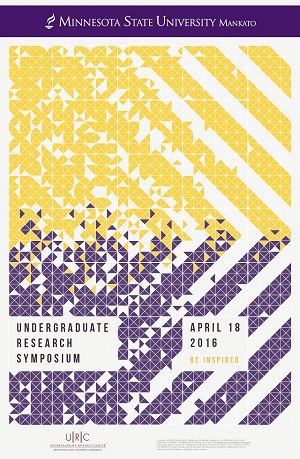The Effect of Sweeteners on the Renin Angiotnesin System
Location
CSU Ballroom
Start Date
18-4-2016 10:00 AM
End Date
18-4-2016 11:30 AM
Student's Major
Chemistry and Geology
Student's College
Science, Engineering and Technology
Mentor's Name
Theresa Salerno
Mentor's Department
Chemistry and Geology
Mentor's College
Science, Engineering and Technology
Description
Excess amounts of sugars can cause diabetes and chronic kidney diseases. Recently stevia and saccharin have been used to lower calorie intake and reduce blood sugar. Extracts of stevia may reduce blood pressure and could be a useful hypotensive agent. The mechanism has not yet been determined but may relate to the renin angiotensin system (RAS). A key protein in the system is the (Pro)renin receptor (PRR). PRR may lead to upregulation of genes associated with hypertension and chronic kidney disease. Recent studies have shown that sweeteners affect RAS; however their effect on PRR is unknown. PRR is a transmembrane protein with a large extracellular domain. The extracellular domain can be cleaved to make a soluble form of PRR. We performed a preliminary study to test the effect of sweeteners on PRR expression in the rat kidney. Rats were fed standard diets with supplements of sucrose or stevia. The kidney tissues were frozen in liquid nitrogen and samples were later extracted to obtain RNA and protein. At the mRNA level, PRR mRNA expressions were not statistically different. This suggested that sweeteners do not affect PRR mRNA expression. Western blotting was used to measure PRR protein expression in the samples. The initial blot suggested the presence of both intact and soluble PRR proteins and a significant decrease in the protein expression of the soluble PRR in the kidneys of rats fed stevia and sucrose. Further studies with a second antibody did not support this initial observation.
The Effect of Sweeteners on the Renin Angiotnesin System
CSU Ballroom
Excess amounts of sugars can cause diabetes and chronic kidney diseases. Recently stevia and saccharin have been used to lower calorie intake and reduce blood sugar. Extracts of stevia may reduce blood pressure and could be a useful hypotensive agent. The mechanism has not yet been determined but may relate to the renin angiotensin system (RAS). A key protein in the system is the (Pro)renin receptor (PRR). PRR may lead to upregulation of genes associated with hypertension and chronic kidney disease. Recent studies have shown that sweeteners affect RAS; however their effect on PRR is unknown. PRR is a transmembrane protein with a large extracellular domain. The extracellular domain can be cleaved to make a soluble form of PRR. We performed a preliminary study to test the effect of sweeteners on PRR expression in the rat kidney. Rats were fed standard diets with supplements of sucrose or stevia. The kidney tissues were frozen in liquid nitrogen and samples were later extracted to obtain RNA and protein. At the mRNA level, PRR mRNA expressions were not statistically different. This suggested that sweeteners do not affect PRR mRNA expression. Western blotting was used to measure PRR protein expression in the samples. The initial blot suggested the presence of both intact and soluble PRR proteins and a significant decrease in the protein expression of the soluble PRR in the kidneys of rats fed stevia and sucrose. Further studies with a second antibody did not support this initial observation.
Recommended Citation
Young, Natalie. "The Effect of Sweeteners on the Renin Angiotnesin System." Undergraduate Research Symposium, Mankato, MN, April 18, 2016.
https://cornerstone.lib.mnsu.edu/urs/2016/poster-session-A/42




